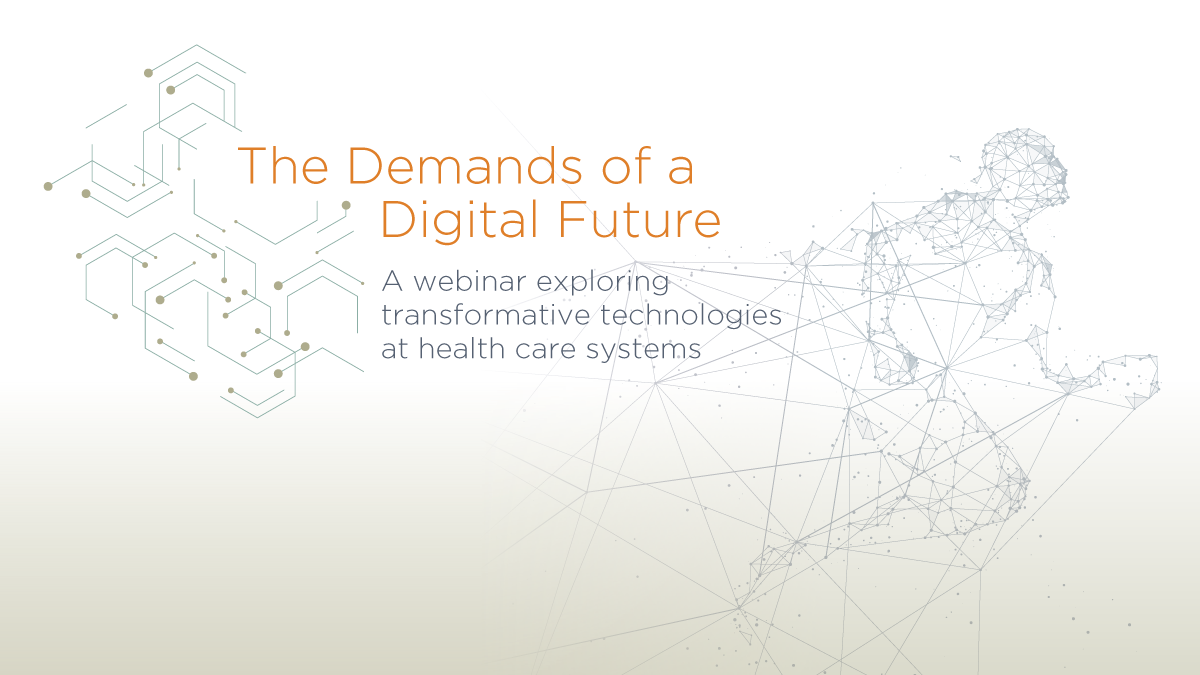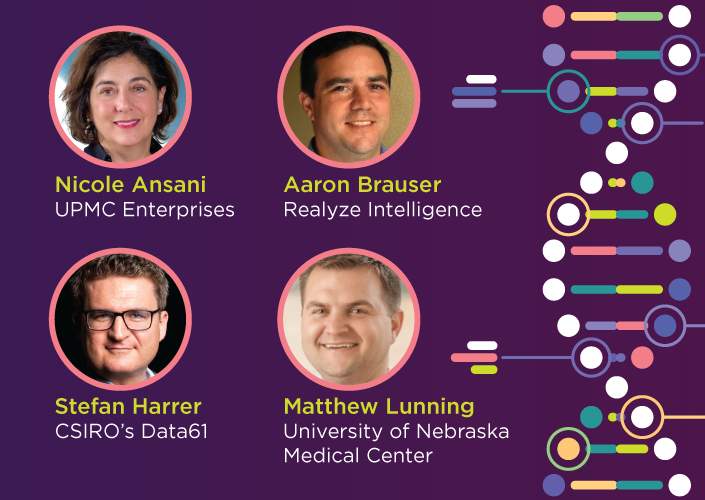Digital health technologies are transforming many aspects of modern life, and health care is no different
However, compared with banking, retail, and other industries, the pace of digital transformation at health systems has been much slower. This webinar from the Center for Connected Medicine explores digital health technologies that are transforming provider organizations.
Watch the webinar:
Digital transformation needed in health care
Consider that a global survey of health care organizations found that nearly 60 percent of respondents had no digital health strategy or were behind schedule implementing their strategy. While some industries have raced ahead to provide consumers with convenient digital services such as apps that allow access to information anywhere and anytime, as well as online ordering and scheduling, these types of services in health care are just beginning to emerge.
Meanwhile, the need for digital transformation in health care is perhaps even greater. In the United States, health care costs are predicted to account for an unprecedented 20 percent of the nation’s Gross Domestic Product (GDP) in a few years. Yet for all these spending, health outcomes in the U.S. remain stubbornly behind those of other developed countries.
There are digital technologies that are key to addressing long-standing challenges of delivering patient-centric care, increasing efficiency and lowering costs, and improving health outcomes. The Center for Connected Medicine (CCM), which convenes thought leaders to discuss pressing issues in digital health, has assembled a panel of experts to provide vital information and examples of digital transformation in health care.
[eBook download: Key takeaways from The Demands of a Digital Future]
During a one-hour webinar, “The Demands of a Digital Future: Exploring transformative technologies at health care systems,” learn about the strategy of using technology to become a real-time health system from a leading industry analyst.
Also, hear examples of how one of the nation’s top pediatric hospitals is improving care with digital solutions; and find out how leading-edge networks can usher in advances in automation, security, and analytics at health systems.
Experts presenting in webinar
The following experts presented during the webinar:
- Barry Runyon, Vice President, Research, Gartner
- Srinivasan Suresh, MD, MBA, Chief Medical Information Officer, UPMC Children’s Hospital of Pittsburgh
- Chris Janson, Senior Product Marketing Manager, Optical Networks, Nokia
Mr. Runyon, a health care provider analyst and researcher at leading IT research firm Gartner, has been in the IT industry since 1978. His research focuses on enterprise and point-of-care technologies and solutions, such as interoperability, clinical communications and collaboration, interactive patient care, and other health care technologies. Mr. Runyon will discuss why health care organizations must adopt the strategies of a real-time health system, along with the key opportunities, challenges, and steps they should consider as part of their digital transformation.
Dr. Suresh, a member of the executive management team at UPMC Children’s Hospital of Pittsburgh, leads implementation of business intelligence tools and advanced data analytics to improve patient and provider satisfaction, mHealth technologies, and clinical decision support tools in the EHR at one of the nation’s top pediatric hospitals. Dr. Suresh will present specific examples of how the hospital is using data analytics to predict readmission risk, provide a more consumer-friendly experience, and improve outcomes.
Mr. Janson, a technologist with more than two decades of experience in IT, tracks and analyzes trends in health care and other industries for Nokia, a leading provider of advanced IT solutions. He will provide commentary on the role of network infrastructure in digital transformation, how health systems can overcome manual processes while boosting security, and the use of cloud computing technology to support advanced analytics.
Read more about digital transformation in health care and what leaders need to know as they prepare for the era of the real-time health system on Nokia’s blog: Evolving healthcare networks for digital transformation.



